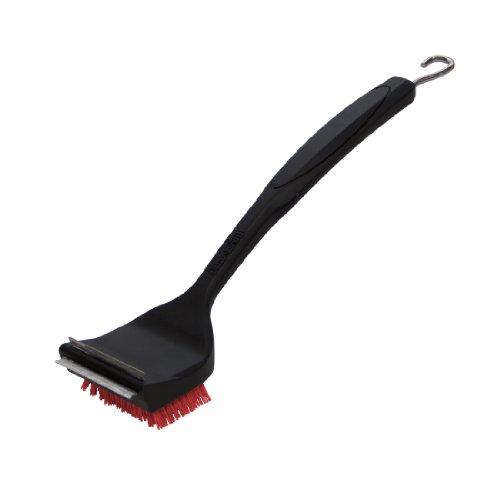How to season a grill – executive chefs reveal why grill seasoning is a summer essential
I spoke to culinary experts about how to season a grill and why you'd bother in the first place

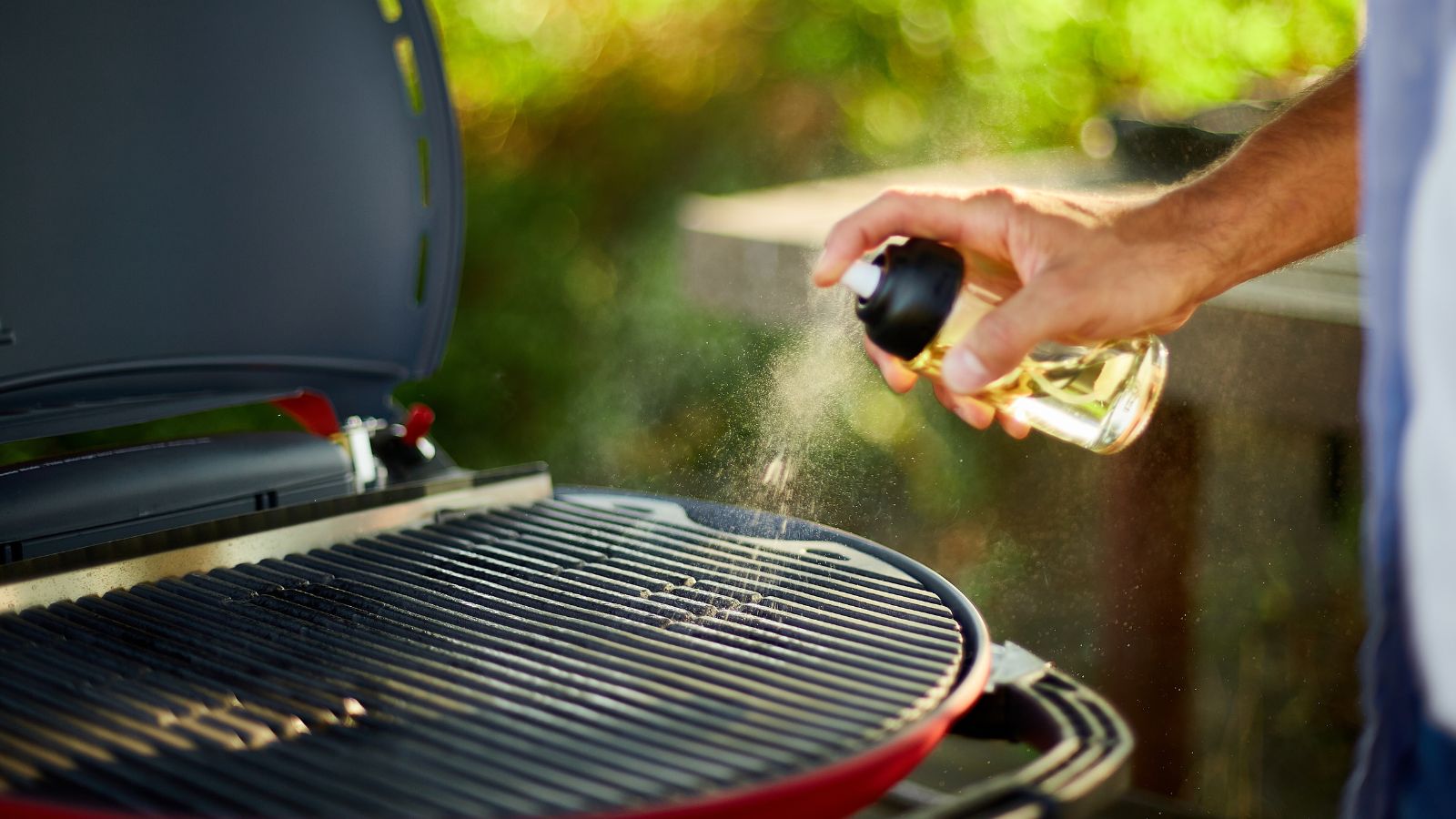
If you own a grill, you've probably had that mystifying moment when some food welds to the grill. It's especially frustrating when you think you've done everything right; you've bought one of the best grills around, your food is well oiled and the grill is hot, so it doesn't make any sense.
The answer is probably that you haven't seasoned your grill. Seasoning your grill with oil can not only make it non-stick, but it can prevent damage, rust, and even makes your food taste nicer.
It sounds complicated, but it's actually pretty easy. I spoke to four expert chefs about how to season a grill - and exactly why it's worth it.
What are the benefits of seasoning a grill?
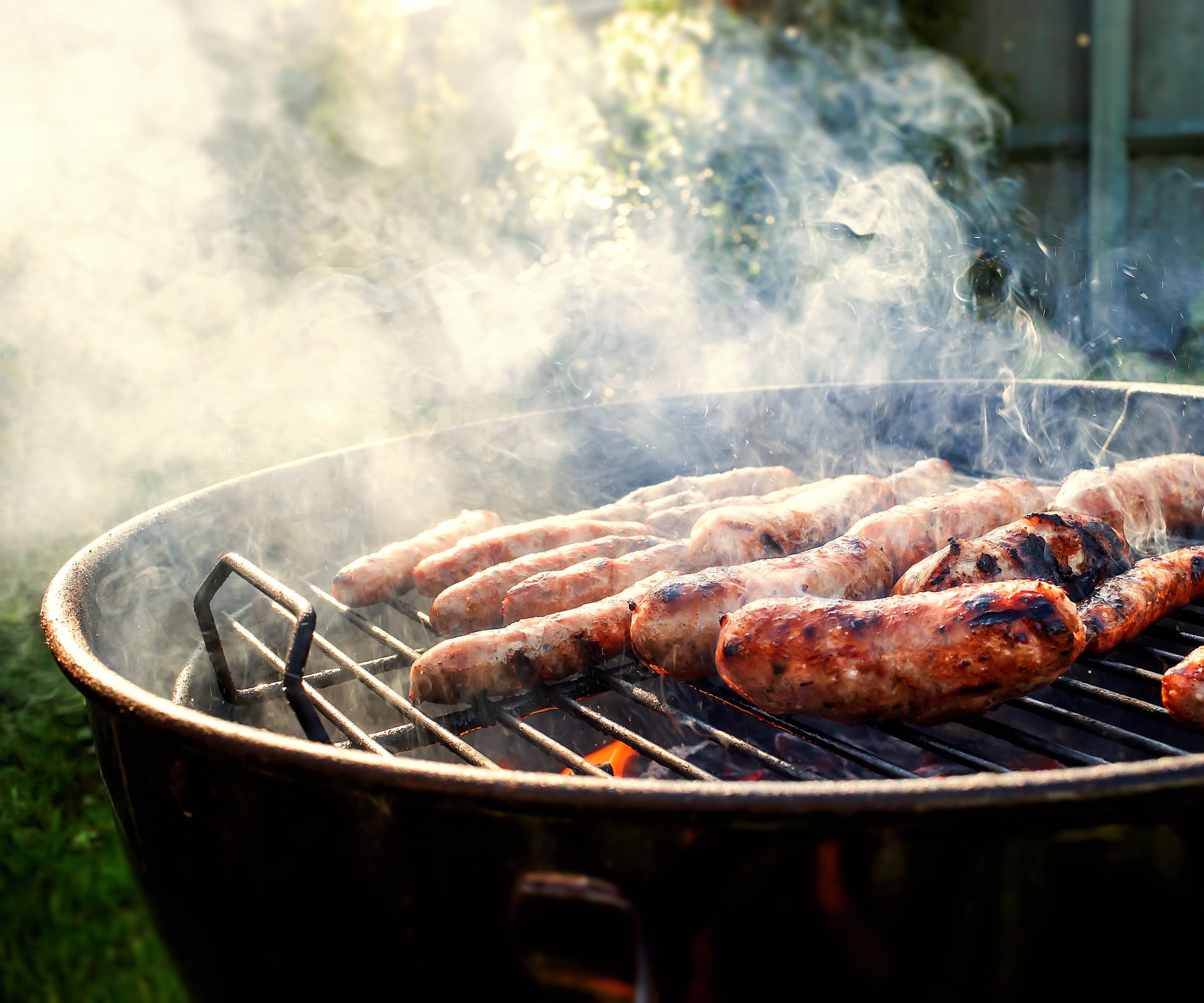
There are many benefits to seasoning your grill. It makes your grill non-stick, cooks better, faster food, and stops your grill from rusting.
Firstly, chef Steven Chiapetti said: 'Seasoning creates a hotter grill and gives your items a fantastic sear and enhances both even cooking and locked-in flavor.'
Chef Todd Dae Kulper agrees, saying: 'Besides the obvious "food not sticking to the grill", when the metal grates of the grill are hot and properly seasoned, the contact it makes to whatever food you place on top will achieve the proper browning or maillard reaction.'
The maillard reaction is what makes burgers taste so good. Chef Todd says that 'a seasoned grill results in better flavor, crust, and umami'.
Design expertise in your inbox – from inspiring decorating ideas and beautiful celebrity homes to practical gardening advice and shopping round-ups.
Steven Chiapetti even referred to seasoning as 'preparing' your grill, because he views it as such an important part of grilling. Not only does it improve flavor, but he says 'it's a critical step to keep it in optimal condition - it will extend the life of your grill'.
Chef David Figeuroa agrees and claims: 'The main benefit is less rust. Seasoning your grill protects cast iron and steel from rusting, much like you would with a cast-iron pan or carbon steel. Plus, it adds a nice non-stick surface for all your grilling adventures.'
However, you don't always need to season your grill. It depends on the grill. Chef Demetrius Brown says: 'It really depends on your grill and the type of grates you have. If it is cast iron, then of course you need to season it; this isn't the case with stainless steel. If you're going the stainless steel route, just be sure you get them hot enough. This will provide better non-stick protection.'

Steven Chiappetti is executive chef at the Albert, an Italian American restaurant inspired by his Calabrian heritage, as well as Archive Lounge, a restaurant inspired by his travels in Sicily.

Todd Dae Kulper’s is Co-executive chef at Umi, a Japanese restaurant in Atlanta. His career has taken him around the world, cooking in Ho Chi Minh City, Honolulu, California and Missouri, among others.
How do you season a grill?
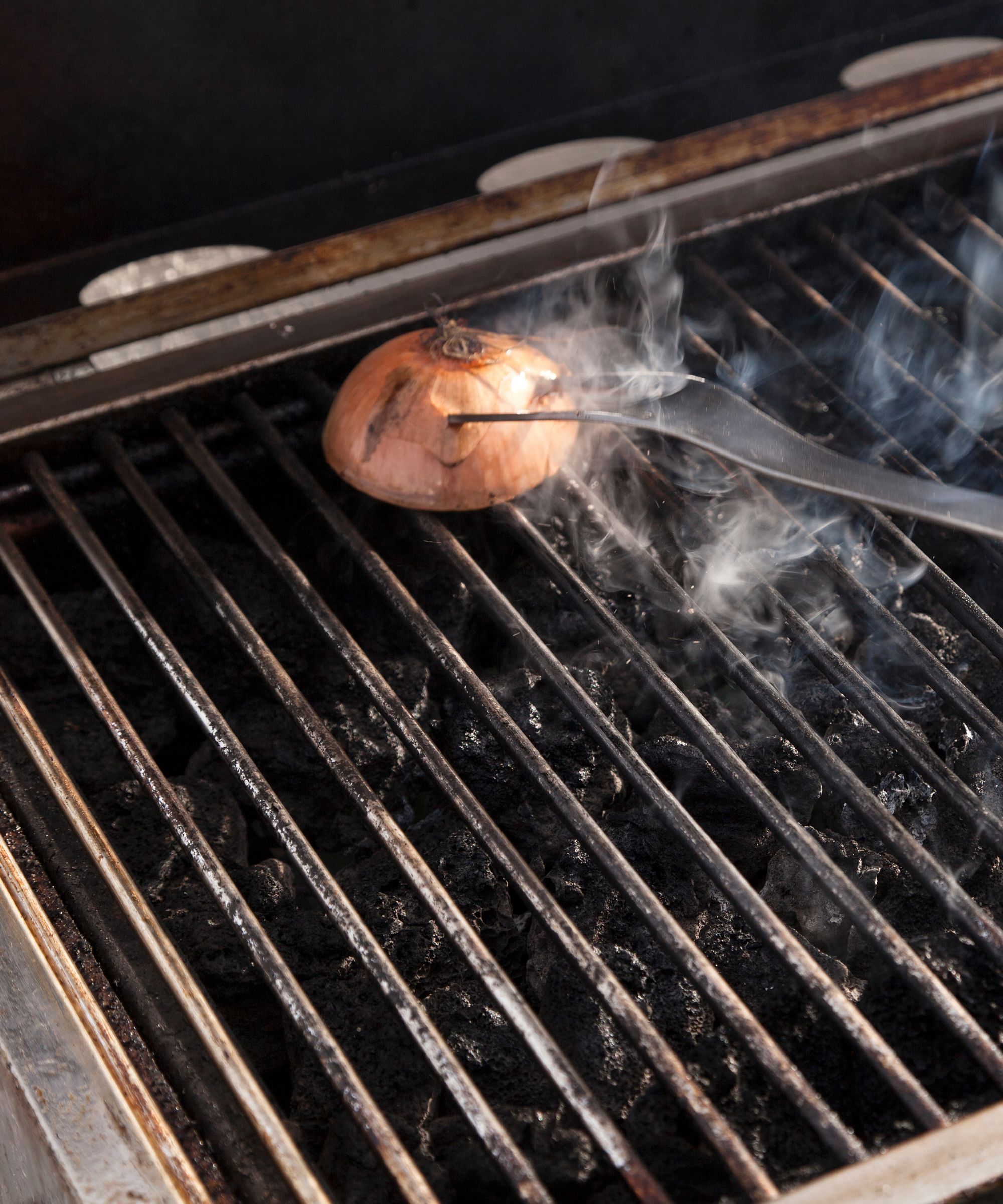
Each chef I spoke to gave a slightly different method, but the basics are the same: fire up the grill, clean your grill, wipe it down with oil, then grill it on its highest heat.
Chef David Figueroa says: 'When you buy a new grill, there are two crucial steps: the initial burn-off and then season. The burn-off is like the grill’s first workout – fire it up to get rid of any manufacturing gunk.'
This step isn't an exact science; Chef Kulper says that you need to 'crank the heat all the way up and burn the grates until they start to glow'.
After this initial burn-off, chef Chiapetti says: 'Clean your grill, even if it's brand new. If it has rust or leftover debris from last season, scrape off or use a stainless steel pad to ensure cleanliness of the grill racks.'
Once your grill is clean, you need to wipe it down with a clean towel dipped in oil. You need an oil with a high heat tolerance or smoke point. This is because other oils - olive oil, for example - can burn when exposed to such high temperatures. This makes a burnt taste which can transfer to your food.
Chef Chiapetti recommends corn, canola or peanut oil, as these have high heat tolerances. If you know anyone with a peanut allergy who'll be eating off the grill, avoid peanut oil, as it may trigger their allergy.
You don't have to use oil, however. Chef Figueroa has an unusual method that sounds delicious. He says: 'I like to rub my grill down with lard and onions. Yes, you heard that right – lard and onions. Rub all surfaces with a cut onion and then slather on the lard.'
The only drawback to this method is that you can't use this grill to cook for vegetarians, or people who keep kosher or halal. However, if you know no one using the grill has these restrictions, it can save you a little money.
After oiling, you need to heat up the grill again, Chef Kulper says: 'Close the lid of the grill and crank the temperature all the way up. Repeat three times and when the grates stop smoking after the third time, your grill is seasoned.'
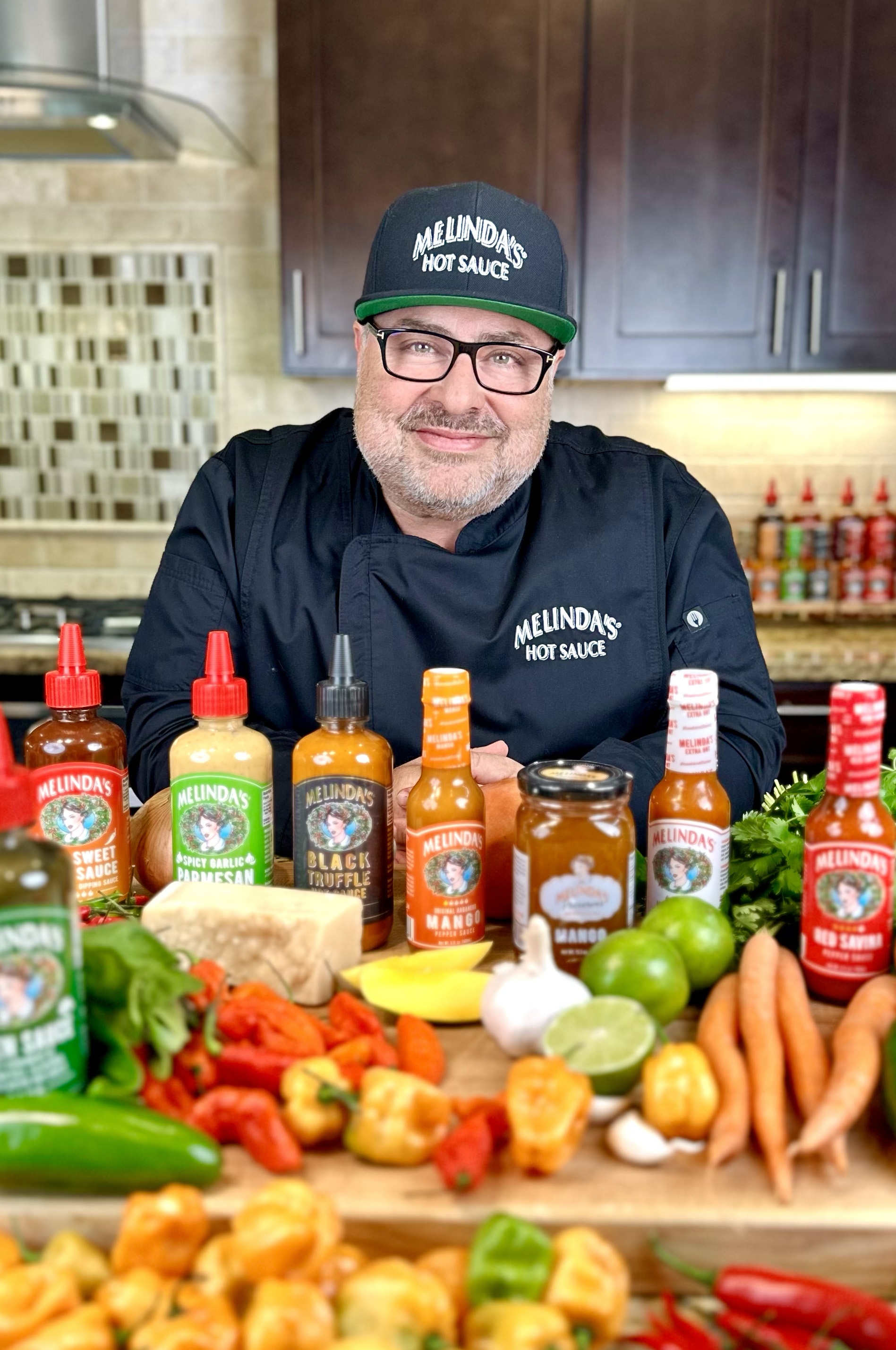
David "Chef Fig" Figueroa, the President and Co-Founder of Melinda's Foods, has been a driving force in the specialty food industry for over 30 years. He is the company's chef and pit master, having honed his skills as a self-taught Chef at Up in Smoke, a barbecue concept that expertly blended southern-style BBQ with Latin flavors.
Do you need to re-season your grill after cleaning it?
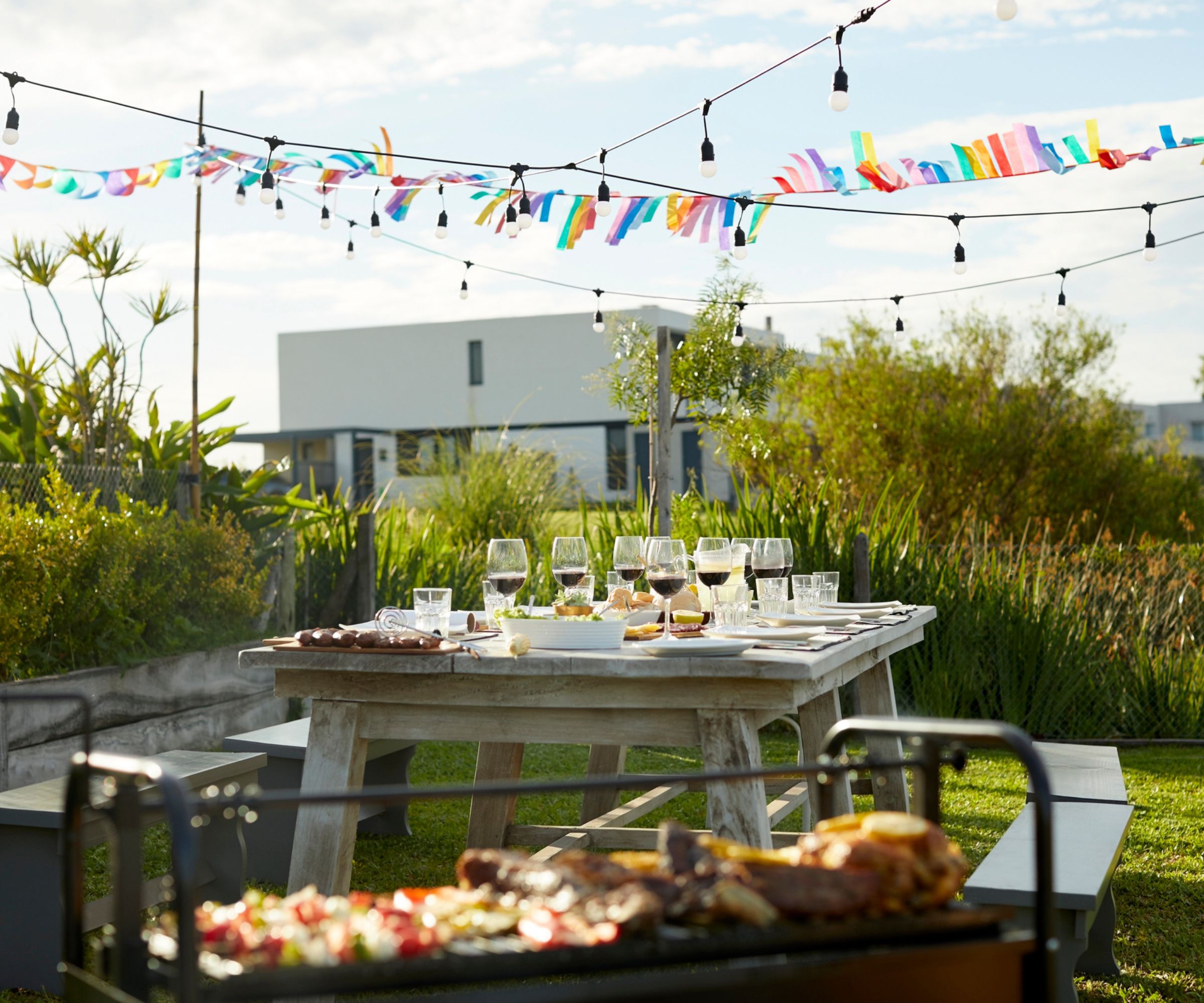
This is all great, but it sounds like a lot of work to season your grill every time you use it. Thankfully, you don't always need to do this. Chef Kulper says: 'It depends on how heavily you cooked on it prior. If you only cooked a couple steaks and hotdogs, a simple brushing is sufficient, but if you're doing a neighborhood cookout and have substantial carbon residue built up, a re-seasoning would probably be called for.'
Chef Chiapetti agrees. He says: 'It's a good idea to touch up the grill again after cleaning. Once clean, take a grill brush and go over the grates and then run a towel with corn oil (or your high-heat oil of preference) over the racks. Then, extinguish the grill and it'll be ready for your next meal. Doing this after every use will maintain your grill for season after season.'
However, if you're pushed for time, don't worry. You can achieve a similar effect by running your grill as hot as you can for a few minutes before you use it.
Chef Brown says that if you don't have the time to properly clean and re-season you grill, 'allow the grill to reach 500 degrees Fahrenheit for 15 minutes – I've found that this burns off any food particles and polymerizes the oil on the grates, thus seasoning the grill grates and prepping for my next culinary masterpiece'.

Chef Demetrius Brown is the Executive Chef & Owner at Bread & Butterfly, a French café in Atlanta's Inman park, infusing Parisian cuisine with the flavors of the African diaspora. Before Bread & Butterfly, chef Brown was executive chef at The Pinewood in Decatur, Georgia, and was a finalist on Food Network’s Chopped Next Gen and a winner on Beat Bobby Flay.
Grill seasoning FAQs
Can you use avocado oil to season a grill?
Avocado oil is great for seasoning a grill, because it has a very high smoke point. However, avocado oil is pretty expensive, so it's a waste to use it on seasoning a grill.
There's much more to using a grill than just seasoning it. For more help with grilling, take a look into our deep dives into how to clean a charcoal grill, and how to clean a grill without a brush.

As a gardens and lifestyle contributor, Alex makes sure readers find the right information to help them make the best purchase. Alex got his start in reviewing at the iconic Good Housekeeping Institute, testing a wide range of household products and appliances. He then moved to BBC Gardeners’ World Magazine, assessing gardening tools, machinery, and wildlife products.
